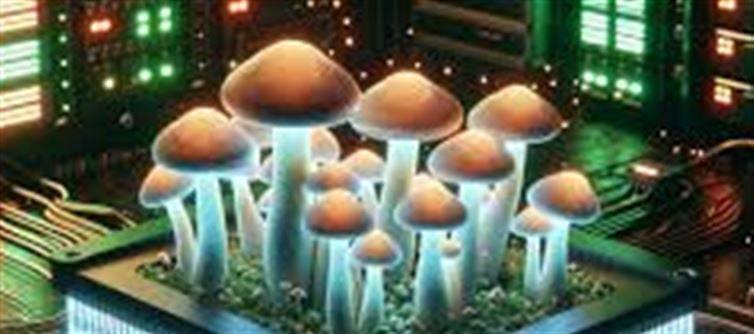
In a surprising twist for tech enthusiasts and biology fans alike, scientists have successfully used shiitake mushrooms to create functional computer memory devices. This breakthrough could open doors to sustainable, low-cost memory hardware in the future.
1. What Are Memristors?
Memristors are electronic components that store data by remembering the amount of current that has previously flowed through them:
· Act as both memory and logic elements, unlike traditional memory chips.
· Can drastically reduce the size and energy consumption of electronic devices.
· Are considered a potential cornerstone for next-generation computing, including neuromorphic systems.
2. Enter Shiitake Mushrooms
Researchers have tapped into mycelium—the root-like network of mushrooms—to create memristors:
· Shiitake mycelium exhibits unique electrical properties suitable for storing information.
· Fungi-based memristors are flexible, biodegradable, and eco-friendly.
· This approach is significantly cheaper than conventional silicon-based memory.
3. How It Works
The team leveraged the natural conductive pathways in mushroom mycelium:
· Current flows through the network of mycelial fibers.
· The system “remembers” previous current states, functioning like a memristor.
· Early prototypes demonstrate successful data storage and retrieval, confirming feasibility.
4. Potential Benefits of Fungi-Based Memory
Using mushrooms for computing offers exciting advantages:
· Environmentally friendly: Mycelium is renewable and decomposes naturally.
· Cost-effective: Reduces reliance on expensive semiconductor materials.
· Scalable: Could lead to new forms of flexible, bio-integrated electronics.
5. The Future of Bio-Computing
This innovation hints at a radical shift in how we design computers:
· Could inspire hybrid systems combining biology and electronics.
· Opens possibilities for neuromorphic computing, mimicking how the human brain processes information.
· Encourages further research into sustainable, nature-inspired technology.
Final Thoughts
While still in the experimental stage, shiitake mushroom-based memristors show that the future of computing might not only be smaller and faster but also greener and more innovative. As scientists explore fungi-based electronics, we could soon see devices that combine the brilliance of nature with cutting-edge technology.
Disclaimer:
The views and opinions expressed in this article are those of the author and do not necessarily reflect the official policy or position of any agency, organization, employer, or company. All information provided is for general informational purposes only. While every effort has been made to ensure accuracy, we make no representations or warranties of any kind, express or implied, about the completeness, reliability, or suitability of the information contained herein. Readers are advised to verify facts and seek professional advice where necessary. Any reliance placed on such information is strictly at the reader’s own risk.




 click and follow Indiaherald WhatsApp channel
click and follow Indiaherald WhatsApp channel